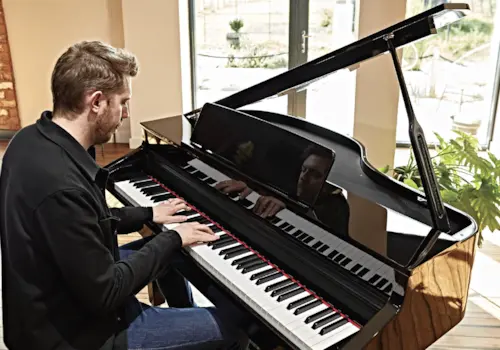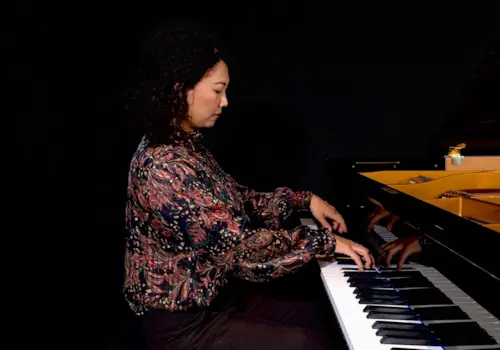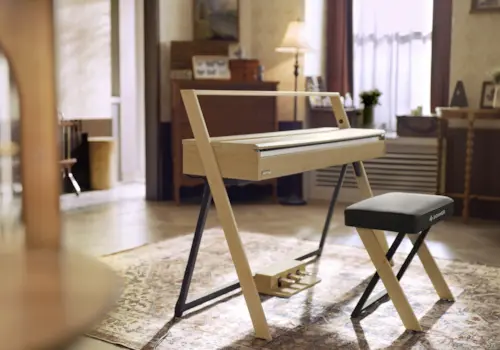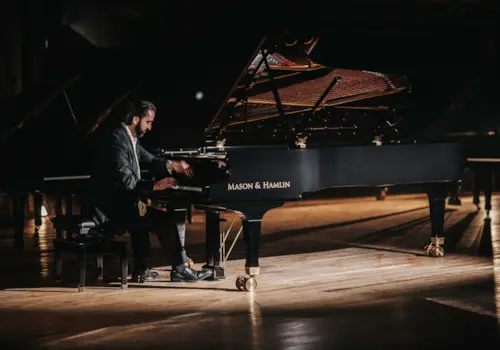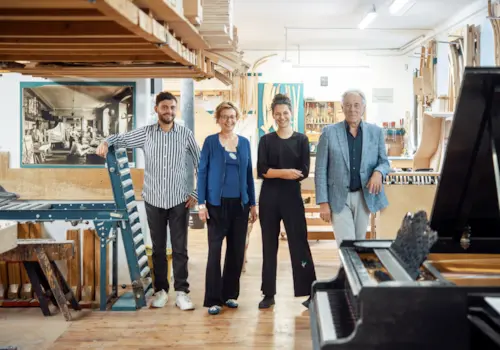As an Associate Professor of Piano at Miami University, Frank Huang has had to adapt quickly and efficiently. He shares some wisdom on how you can do the same
It was March 10, 2020, roughly two weeks before heading to spring break, when I was told by Miami University that face-to-face instruction would be suspended and that we needed to shift to online teaching.
While this announcement wasn’t entirely a surprise to me, I saw this change as a welcomed challenge because I have always wondered as a piano teacher how we could find new and innovative ways to deliver our instruction to students. This health crisis has brought many hardships on all of us, but there is one silver lining:
It has forced us piano teachers to rethink our pedagogy and think about how we can inspire our students from afar. Now that the school year has concluded, I want to share my experiences in teaching online this semester and things that I have learned along the way.
Teaching online is much quicker-paced than in person

Online teaching is all about disseminating information in a quick and efficient manner, which makes for a less than ideal learning environment for music making.
Furthermore, I have found that this delivery method does not excel the best in activities that require time and patience such as exploration, discussion, and the finessing of musical details and nuancing. Instead, I believe that it is necessary to adjust the intensity and speed of how we teach and study music online.
To be clear, I am not suggesting to ignore detailed-work entirely—this activity is vital in developing fundamental skills and overall musicianship. Instead, I suggest that one might shift gears slightly and introduce a variety of different activities to your weekly lesson plans to help keep students motivated.
Kathryn Page offers up more advice about online teaching inside issue 114 of Pianist.
Variety, variety, variety

Remind them why they love to play the piano! Perhaps it was a certain piece that they heard when starting the piano or an inspiring performer. For me, I have found that encouraging students to study and read through more music can help keep things fresh.
Additionally, I have learned that assigning fun and creative projects can be highly effective too. For instance, part of my teaching responsibilities at Miami University include coaching chamber music ensembles, which has been nearly impossible to do during this pandemic.
Instead, for one of my groups, I had each student record their part separately with video. Then, I had them use software programmes such as Adobe Premiere or Acapella to layer and stitch these parts together. While this activity is not a complete replacement for chamber music, students still learned important team building, communication skills, and most importantly, new ways to develop promotional content.
Next time, try this fun activity when you assign piano duets to your students!
Connect with students and celebrate their accomplishments… even if it is virtually
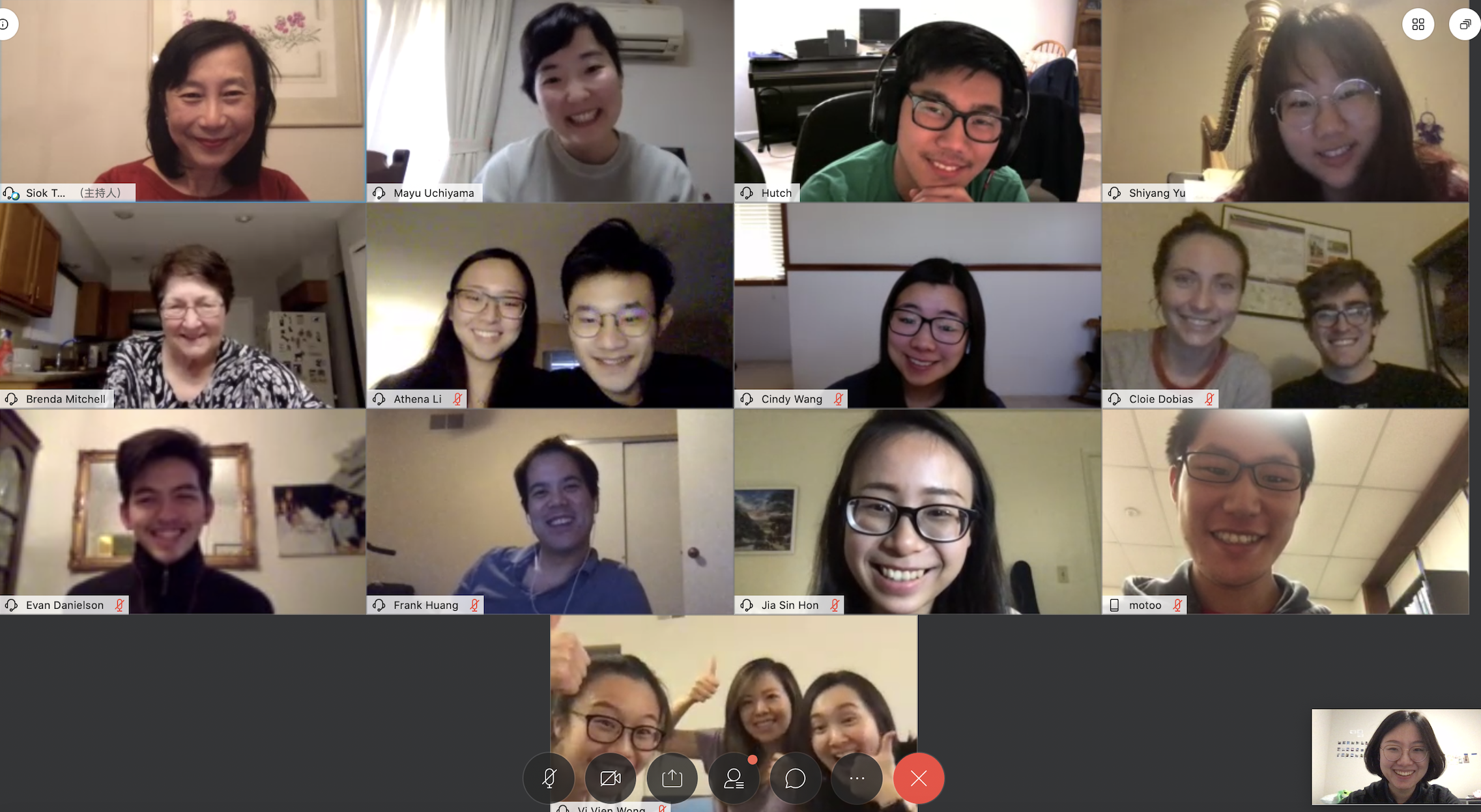
Frank Huang and his students together on a video call
Many of my students had to give graduating recitals this semester as part of their degree requirements. Hours and hours were spent in preparing for these performances, only to find out later that they couldn’t be held publicly. I sympathized with them and I could see it was difficult for them to stay focused and inspired.
After seeing this, the piano area in our music department came up with a way to celebrate our students’ performances and accomplishments. We had our students record their recitals beforehand and we hosted watch parties on Zoom. Students had the opportunity to invite friends and family, and it seemed like a lovely way to celebrate their achievements.
During these difficult times, I am thankful that we have the existing technology to keep us connected. I encourage all teachers to continue to hold studio recitals alternatively as I believe it is important to always provide attainable goals for our students.
“In the middle of difficulty lies opportunity.” –Albert Einstein
One of the things that I love about music is that it is a never-ending learning process. No matter how much performing and teaching experience one might have, there is always something that we can learn to do better.
This crisis has taught me the importance of being even more versatile and adaptable to the unexpected changes that are beyond our control. And let’s look at it optimistically: the lessons that we learn from these obstacles arm us with the requisite skills and traits to be successful professionals in the working industry.
Stay safe and healthy and I wish happy music making to all of you!
Frank Huang is a concert pianist, blogger, and Associate Professor of Piano at Miami University (Ohio).

